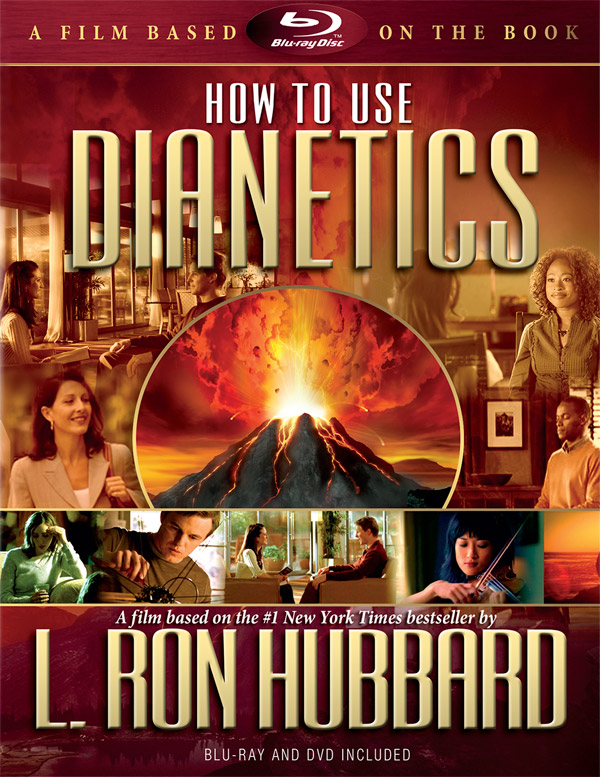4 Easy Facts About Dianetics Explained
4 Easy Facts About Dianetics Explained
Blog Article
Excitement About Dianetics
Table of ContentsThe Greatest Guide To DianeticsDianetics for DummiesDianetics - Truths8 Simple Techniques For Dianetics
I could not ever before not intend to get anything that enters your mind for you- if it was or else, I wouldn't be resting here with you, doing this. I not only can never ever have an issue, or otherwise desire to listen to something that enters your mind for you, however I'm entirely excited to know every idea, every idea, every image or sensation that emerges or manifests for you- don't ever think or else, and if for one reason or another you do, please simply let me understand! Sometimes, you may have a thought, and image, concept or case appear that does not appear to address the concern, or associate with it, yet nevertheless, always do inform me concerning it, and as we proceed, the importance will certainly emerge for you.This is inherent in the basis of handling, and the subject of this discussion: the basic roles of the therapist and the client: The standard duty of the counselor is, as opposed to "conventional training", not to control, which means to enforce and/or inhibit, yet to rather function from the basis of EMPOWERING THE CUSTOMER.

The Best Guide To Dianetics
John Mcmasters expressed this standard truth wonderfully well in one of his lectures on Power processing, wherein he discusses exactly how he was asked what this "unique flair" was that he had for providing such fantastic sessions; he needed to consider that for a minute, and detected that it was what he wasn't doing, as well as what he was doing: he wasn't reviewing, evaluating, computing, or actually, creating any kind of thoughts, not to mention verbal expressions, after giving the command and while awaiting the PC to complete their response to their complete satisfaction; he was, just and only, existing with the computer, and entirely interested.
The role of the counselor, showed; that was his "unique knack". I have actually had my own experience which instructed me this well, very beforehand in the game. In 1982, having recently completed my training and teaching fellowship on New Age Dianetics, I was running this on a COMPUTER, and there was a factor in the session where (being a little bit damp behind the ears not yet having numerous hours under my belt as a professional auditor) the PC seemed to be "taking also lengthy" to express anything vocally after I offered him a command.
This secret became the most valuable contribution that John ever made to the subject of therapy or auditing (Dianetics). In my simple point of view, it is the biggest contribution that anyone has actually ever before made to these subjectsthe application is totally non-judgemental, non-evaluative, and lacking any kind of tip, advice or opinion.no preconceived program for people, or 'levels' that they need to why not try this out do
In Scientology we prided ourselves on not examining for people. All that really suggested was that the auditor did not Vocally review for the PC in session.
Examine This Report on Dianetics

Anybody that had ever before seen John audit can not help however notice an one-of-a-kind quality in his auditing."The client's basic role is to be there with the purpose of moving in the direction of their spiritual objectives, and to easily and totally share and experience whatever manifests for them in addressing the questions and carrying out the guidelines in the handling.
This is something to process as required. However also, people regularly have previous experience and/or brainwashing in auditing/processing which, somehow, and to some extent, in fact misdirects them right into perspectives, ideas and actions patterns that avoid the full understanding of these roles, and so they will have a tendency to prevent the expressing of what comes to mind, as in the examples provided over. * The first, and possibly leading instances of mis-indoctrination bring about less than totally smooth and reliable sessions, can be located in particular facets of the training routines, or "TR's":"TR's" are commonly a person's very first, or a minimum of early, experience in More hints Scientology, and while I will certainly take place to explain what I view as the imperfections in idea and technique, nonetheless, tend to be substantially restorative, done as they are offered (Hubbard insists that "TR's are not processing, they are training", however factually, they are both processing AND training)
Alan Walter made similar observations, and enhanced on these with his "Visibility Processes". There is no "flunking", and no denial of the reality of this being processing. The emphasis, as it should be, is on experiencing the various other person's existence. All the symptoms which get a "fail" in doing "TR-0" are just the being's initiatives to stand up to the additional info other person's visibility, and instead of being pestered and badgered with "Flunk", which enforces "failure!" on the being, one simply needs to be motivated to "stick their feet in the water a little deeper", to progressively refurbish their capability and determination to fully share and experience "being right here", or "existence", with others.
The 10-Minute Rule for Dianetics

Report this page